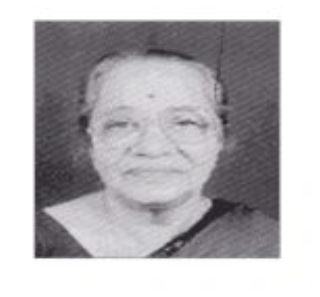Late Padma Bhushan Dr. Kamal Ranadive

Dr. Kamal Ranadive a pioneer in the field of Cancer research, played a pivotal role in the formation of IWSA, in 1973, along with the other 11 founder members. She was the president of IWSA in 1977 to 1979.
Dr. Ranadive is a BSc and MSc from Pune University. She completed PhD on Cell Biology at the University of Leeds, UK, followed by Postdoctoral training at the National Institutes of Health, USA. Her specialization was in Experimental Biology. She was the Acting Director of Cancer Research Institute (CRI), Mumbai from 1966 to 1970. She was also involved in creating, shaping, and leading an organisation of great repute, such as- Indian Cancer Research Centre (ICRC).
At the ICRC, she was instrumental in establishing the Experimental Biology Laboratory and the first Tissue Culture Laboratory in India. In addition to this, she worked on leprosy bacteria, which eventually led to the preparation of a leprosy vaccine. During her career, she published over 250 scientific research papers on cancer and leprosy. She received the Sr. Col. Amirchand Award of ICMR in 1958 and became the first recipient of the Silver Jubilee Research Award, of the Medical Council of India, in 1964 for cancer research. Further, she received the Watumal Award for her work on human leprosy. In 1976 she received the Sandoz Award for her work on environmental carcinogenesis. She was awarded the Padma Bhushan for medicine, in 1982. At CRI she pioneered research on pre-cancerous changes induced by tobacco use in human subjects and on the preventive effects of dietary and natural products against cancer. She published her research work extensively and was cited around the world on this subject.
Her work on the cancer-preventive effects of turmeric was nationally and internationally recognised and she was invited to be the Asia regional editor for the journal ‘Ethnomedicine.’ She served in many of the committees of Government and International organizations.
After her retirement she championed the cause of health care of women and children in tribal regions. She worked on the nutrition and health of tribal women and children in Rajpur and Ahmednagar through government-sponsored projects under the aegis of the Indian Women Scientists’ Association.
